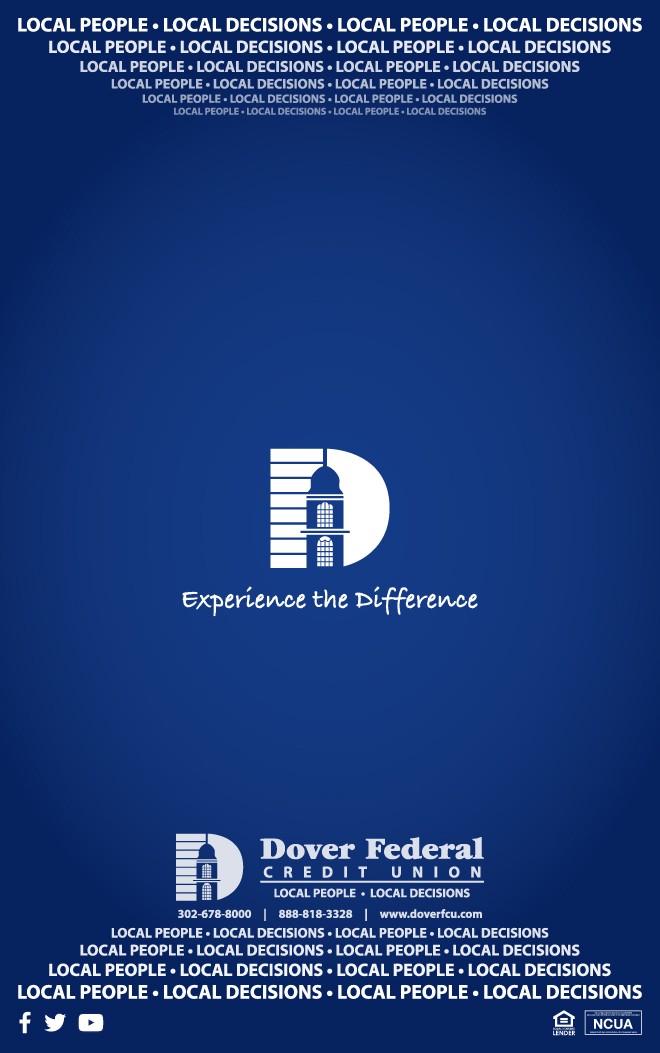The “B” Word
By The Financial Fitness Team at Dover Federal Credit Union
According to a poll taken by CNN, roughly “7 in 10 respondents in America” reported to be “very stressed” about money. In the same report, less than 5% of respondents reported to be not stressed about their finances. Sadly, financial stress is spreading rapidly through our country. This is a stress that does not affect your mindset alone; it affects far more. Unfortunately, this is not a situation that targets specific areas of our lives, it affects it in its entirety. Too many Americans can relate to the feelings that this stress brings. As a matter of fact, simply thinking about financial stress can evoke feelings of nervousness. The good news is, financial stress can be relieved and the empowerment of financial freedom can be invigorating.
Many consumers have fallen victim to an impulse purchase. The short term satisfaction can be enjoyable, but the long term effect can have consequences. Impulse purchases are no longer what they used to be. Today an impulse purchase might be buying an iPad from the comfort of your own home, and then turning around and buying a movie to watch on the TV, with Papa Johns on the way. It is no wonder why so many of us have an issue keeping track of our money. Convenience and technology have made it easy, and much too convenient to let go of our money and have no clue on where it has all gone. How can you know where your money has gone and reduce financial stress in one step? It’s actually pretty simple; it’s the “B” word of the financial world . . . known as BUDGETING.
Where to start, how to begin? The first step is the hardest; but once you’ve made the commitment to budget and use self discipline, you will begin to lower your stress levels drastically. Let’s go ahead and get started on a few easy steps that will introduce you to your new life of financial empowerment.
1. Set a list of financial goals-
Make a list of all short term and long term goals. Short term goals are usually under a year, and long term over. Remember when setting these goals it is important to stick to them, but they are not set in stone.
2. Know your NET income-
It is very easy to overestimate what you can afford so remember to plan on using your net income, not your gross. (In other words, don’t use your salary. Use your income AFTER taxes.)
3. Make your plan-
Start by having two categories, fixed and variable expenses. Fixed expenses are those such as your mortgage/rent, auto payment, utilities, etc. Variable expenses are those such as gas, oil changes, kids events, entertainment, etc. Plan, and account for all fixed spending at this time. (Fixed spending SHOULD include a minimum of 10% of your net income into savings.)
4. Track your variable spending-
You may prefer a spreadsheet on your computer, phone, or tablet. You may prefer using paper and a pencil. You may just prefer a list. Whatever you feel comfortable with, use it. When tracking your expenses list everything you put money towards, even if it is as inexpensive as a pack of gum.
5. Make it your own-
The best thing about a budget is the fact that you can personalize your budget and make it your own. After you set aside the money needed for the fixed expenses, you can determine where you have your wiggle room to spend money on what you want, rather than what you need.
You are on your way to financial empowerment! Stay disciplined, and do not give up!
Helpful Tips to Remember
- Set realistic goals.
- Set aside extra money for irregular expenses.
- Remember that it is hard to get off a routine of spending, so do NOT let small failures get you down.
- Remember that every month is different. Prom, tires, oil changes, etc., make monthly check ins a priority!
Be sure to choose a financial partner on your side, who is committed to your financial health and well-being and who makes you a TOP PRIORITY.





